detail profile marcel achard
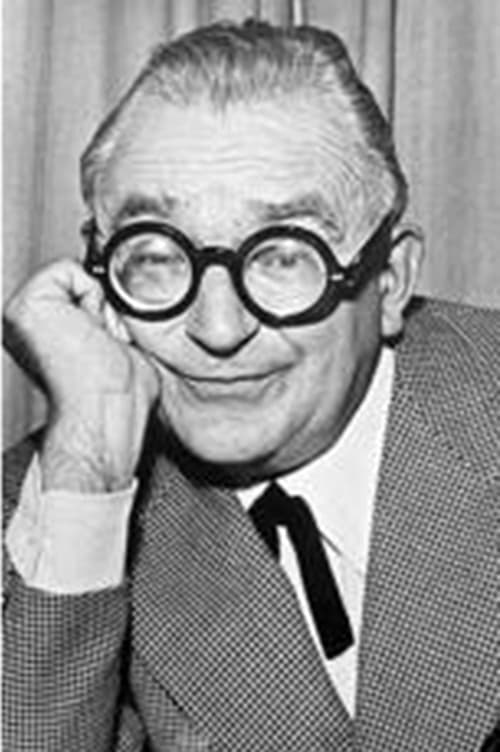
Riwayat Hidup
Marcel Achard (b.
5 July 1899, in Sainte-Foy-lès-Lyon, Rhône; d.
4 September 1974, Paris) was a French playwright and screenwriter whose popular sentimental comedies maintained his position as a highly-recognizable name in his country's theatrical and literary circles for five decades.
He was elected to the Académie Française in 1959.
Description above from the Wikipedia article Marcel Achard, licensed under CC-BY-SA, full list of contributors on Wikipedia.
Info Pribadi
Peran Yang Di Mainkan Marcel Achard
 Inspector Jacques Clouseau smitten with the...
Inspector Jacques Clouseau smitten with the...A Shot in the Dark 1964
Inspector Jacques Clouseau, smitten with the accused maid Maria Gambrelli, unwittingly turns a straightforward murder investigation into a comedic series of mishaps, testing the patience of his irritable boss Charles Dreyfus as casualties mount.
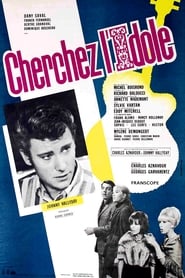 After stealing a diamond from Mylne...
After stealing a diamond from Mylne...Cherchez l'idole 1964
After stealing a diamond from Mylène Demongeot, Richard hides it inside a guitar. But on returning to the music shop he discovers that the precious instrument has just been sold! The problem is complicated by the fact that five stars all bought the same model that morning...
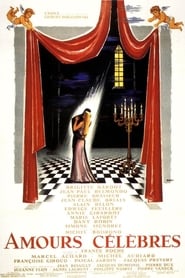 Anthology of four love stories that...
Anthology of four love stories that...Famous Love Affairs 1961
Anthology of four love stories that have some historical basis.
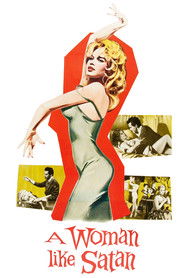 Handsome and rich Spanish gentleman abandons...
Handsome and rich Spanish gentleman abandons...A Woman Like Satan 1958
Handsome and rich Spanish gentleman abandons his wife and riches for his love of a young girl of poor stock who taunts and degrades him.
 Celestin works as an organist at...
Celestin works as an organist at...Mademoiselle Nitouche 1954
Celestin works as an organist at a girl's school. By day, Celestin is the meek and mild target of the girls' incessant practical jokes. By night, however, he is the celebrated composer of popular operas -- and the romantic vis-à-vis of a celebrated stage star. When schoolgirl Denise stumbles onto Celestin's secret, she threatens to tell all -- but only if Celestin refuses to escort her to the opening night of his latest opera. As a result, Denise falls in love with a handsome young soldier, while Celestin is accidentally shipped off to an army camp. A series of silly coincidences brings happiness to all concerned by fade-out time.
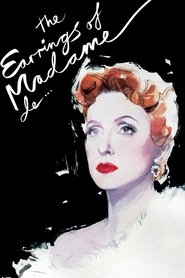 In late 19th century France the...
In late 19th century France the...The Earrings of Madame de... 1953
In late 19th century France, the Countess Louise, wife of a wealthy general, sells the earrings her husband gave her on their wedding day to pay off her secret debts, then claims to have lost them. Her husband quickly learns of the deceit, which is the beginning of many tragic misunderstandings, all involving the earrings, the general, the countess, and her new lover, the Italian Baron Donati.
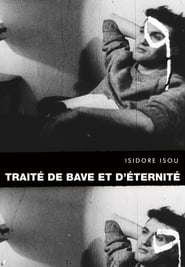 In this experimental film Isidore Isou...
In this experimental film Isidore Isou...Venom and Eternity 1952
In this experimental film, Isidore Isou, the leader of the lettrist movement, lashes out at conventional cinema and offers a revolutionary form of movie-making: through scratching and bleaching the film, through desynchronizing the soundtrack and the visual track, through deconstructing the story, he aims to renew the seventh art the same way he tried to revolutionize the literary world.
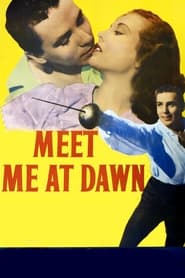 A young man makes his living...
A young man makes his living...Meet Me at Dawn 1947
A young man makes his living in Paris in 1900 by fighting duels on behalf of other parties. He is hired to injure a leading politician and starts to get involved with a girl he uses to provoke the challenge. One newspaper, hostile to the politician, headlines the story of the impending duel asking who this Madame X is. Problem is, she is in fact the daughter of the paper's proprietor if only he knew it.
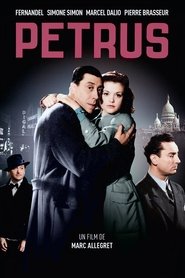 Petrus a Montmartre photographer is accidentally...
Petrus a Montmartre photographer is accidentally...Pétrus 1946
Petrus, a Montmartre photographer, is accidentally wounded by Migo, a dancer at the Frou Frou night club, when she is trying to shoot her faithless lover Rodrigue, a counterfeiter. Though Petrus tries to reconcile the lovers, Migo lands up with him after Rodrigue is finally killed by another jealous dancer.
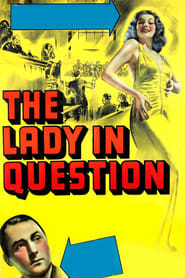 When a jury member takes in...
When a jury member takes in...The Lady in Question 1940
When a jury member takes in the defendant he couldn't convict, she has a bad influence on his son.
 During WW1 a train is stopped...
During WW1 a train is stopped...The Deserter 1939
During WW1, a train is stopped by a bombing, a young soldier takes advantage of the opportunity to go to his native village to connect with his love and his family. As WW2 began in the real world, this film was rereleased later in ‘39 under the revised title Je t'attendrai (I Will Wait for You).
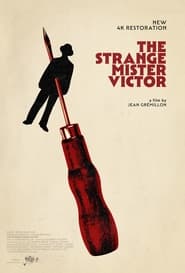 Outwardly Monsieur Victor would appear to...
Outwardly Monsieur Victor would appear to...The Strange Monsieur Victor 1938
Outwardly, Monsieur Victor would appear to be the model citizen. A respectable Toulon shopkeeper, he has a devoted wife and is courteous and considerate to all who know him. However, beneath this veneer of respectability hides a notorious receiver of stolen goods, who trades with hardened criminals. Victor manages to keep up his double life without any difficulty until the fateful day when one of his partners in crime threatens to expose him. Fearing a scandal, Victor kills the crook in a moment of panic, using a shoemaker's tool. Naturally, the murder is blamed on a local shoemaker, who is sentenced to ten years' hard labour. Seven years later, the former shoemaker reappears in Toulon, having escaped from prison. The first person to recognise him is Monsieur Victor...
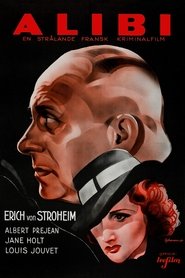 Paris 1937 Winckler kills his enemy Gordon...
Paris 1937 Winckler kills his enemy Gordon...Alibi 1937
Paris, 1937. Winckler kills his enemy Gordon, a Chicago mobster, from the stage of a Parisian music hall, where he performs telepathy. He pays another artist, Helene, so that she tells the police they've spent the night together, which doesn't fool Callas, the police officer who investigates the murder. He hires one of his fellow officers in order to seduce Helene.
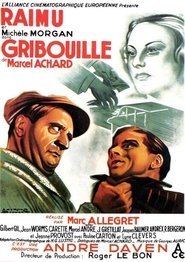 Camille Morestan serves as a jury...
Camille Morestan serves as a jury...Gribouille 1937
Camille Morestan serves as a jury member at a court in Paris. The attractive Natalie Roguin is accused of murder. Morestan doesn't want to believe she really killed her lover. He succeeds in convincing the other jury members she was innocent. After her acquittal he takes her into his house. While he tries to keep her identity a secret for his family her presence leads to a number of unfortunate incidents.
 Rudolf the only heir to Emperor...
Rudolf the only heir to Emperor...Mayerling 1936
Rudolf, the only heir to Emperor Franz Josef of Austria-Hungary, is trapped in a loveless marriage to a Belgian princess. As he seeks to flee his stifling environment, he meets the beautiful Maria, and the two enter into a scandalous affair. Despite the interference of the Emperor, the couple refuse to give each other up.
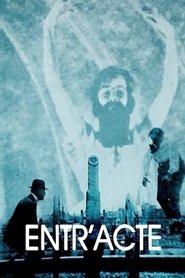 Stopmotion photography blends with extreme slowmotion...
Stopmotion photography blends with extreme slowmotion...Entr'acte 1924
Stop-motion photography blends with extreme slow-motion in Clair's first and most 'dada' film, composed of a series of zany, interconnected scenes. We witness a rooftop chess match between Marcel Duchamp and Man Ray, a hearse pulled by a camel (and chased by its pallbearers) and a dizzying roller coaster finale. A film of contradictions and agreements.
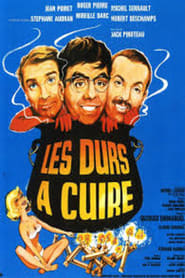 A playwright has to murder if...
A playwright has to murder if...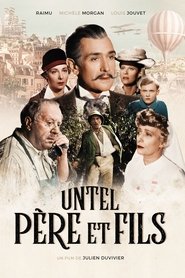 The story of how the people...
The story of how the people...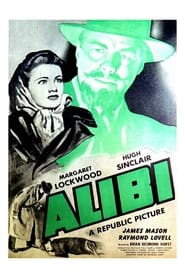 In 1930s France a bar hostess...
In 1930s France a bar hostess...